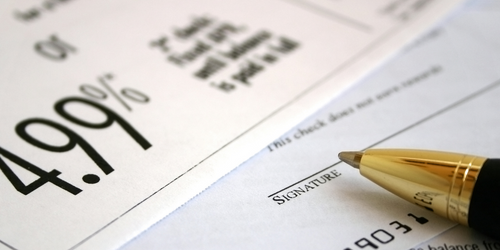What’s Ahead For Mortgage Rates This Week – March 27, 2023
 Last week’s financial and economic reporting included readings on sales of new and previously-owned homes, along with weekly data on mortgage rates and jobless claims.
Last week’s financial and economic reporting included readings on sales of new and previously-owned homes, along with weekly data on mortgage rates and jobless claims.
Single-Family Home Sales Rise in February
Year-over-year sales of previously owned homes rose 14.5 percent to a seasonally-adjusted pace of 4.58 million sales. Analysts expected 4.20 million sales of pre-owned homes as compared to January’s year-over-year reading of 4.0 million sales. February’s increased sales halted 12 months of falling sales of previously-owned homes. February’s reading marked the highest pace of sales since July 2020, when sales of pre-owned homes rose by 22.40 percent.
The National Association of Realtors® said that February’s reading represented the largest increase in existing home sales since the inception of reporting sales of previously-owned homes in 1999. The median sale price of existing homes was $363,000 in February. There was a 2.6-month supply of homes available in February.
February sales of new single-family homes rose to 640,000 sales from January’s reading of 633,000 sales. While analysts said that a brief lull in climbing mortgage rates contributed to increased home sales, new home sales remained 22.60 percent lower than in February 2021.
FOMC Statement: Fed Strives to Hold Inflation in Check, Mortgage Rates Fall
The Federal Reserve’s Federal Open Market Committee released the minutes of its March meeting; the Committee voted to raise its key interest rate range to 4.75 to 5.00 percent; the Committee reaffirmed its goal of returning inflationary growth to two percent. Fed Chair Jerome Powell said that the Fed was planning to continue rate hikes before the failure of Silicon Valley Bank. Chairman Powell said the bank’s failure forced Fed policymakers to consider a halt to interest rate hikes.
Freddie Mac reported lower average mortgage rates as the rate for 30-year fixed-rate mortgages fell by 18 basis points to 6.42 percent. The average rate for 15-year fixed-rate mortgages fell by 22 basis points to 5.68 percent. Initial jobless claims fell slightly to 191,000 claims as compared to the previous week’s reading of 192,000 first-time claims filed. Continuing jobless claims rose to 1.69 million claims filed from the prior week’s reading of 1.68 million ongoing claims filed.
What’s Ahead
This week’s scheduled economic reports include readings on home prices, inflation, and consumer sentiment. Weekly reports on mortgage rates and jobless claims will also be released.
 If you’re about to seek approval for a mortgage, you’ll want to ensure you have a solid credit score and clean financial records to boost your likelihood of being approved. There are certain characteristics that lenders want to see in a mortgage applicant before they agree to give a loan, and you want to prove that you’re a responsible borrower. But certain behaviors can easily tank your application and crush your home ownership dreams.
If you’re about to seek approval for a mortgage, you’ll want to ensure you have a solid credit score and clean financial records to boost your likelihood of being approved. There are certain characteristics that lenders want to see in a mortgage applicant before they agree to give a loan, and you want to prove that you’re a responsible borrower. But certain behaviors can easily tank your application and crush your home ownership dreams. When you go through the process of applying for a mortgage, you need to make sure you understand all of the terms on the page. Two of the most common numbers you will come across include the mortgage rate and the APR. Many people associate both of these numbers with interest rates, but you will probably notice that they are not quite the same. What are the differences between these two numbers, and how are they going to impact your mortgage loan?
When you go through the process of applying for a mortgage, you need to make sure you understand all of the terms on the page. Two of the most common numbers you will come across include the mortgage rate and the APR. Many people associate both of these numbers with interest rates, but you will probably notice that they are not quite the same. What are the differences between these two numbers, and how are they going to impact your mortgage loan?